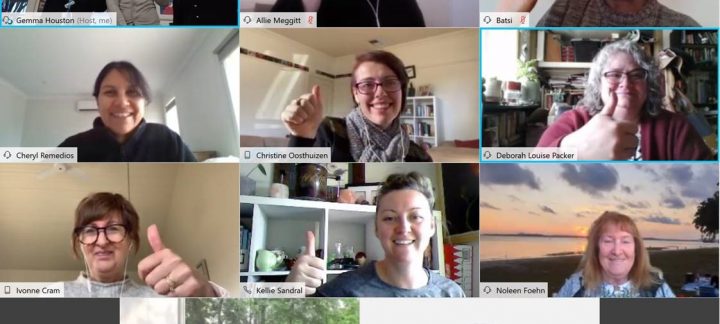The Speaking Up for Safety™ (SUFS) program has been implemented across Health Services in Victoria and New South Wales. Developed by the Cognitive Institute, the program provides staff with the skills they need to empower them to communicate their concerns about safety. By doing so, the program aims to prevent unintended harm to staff and patients.
SUFS supports an organisational culture where all staff can feel confident to speak up respectfully and effectively about safety issues. The program also supports staff to develop awareness and skills to receive concerns from colleagues who wish to prevent harm to patients and staff.
An essential aspect of achieving a safe and reliable culture is a common language and approach where staff support each other and speak up whenever harm is anticipated. This requires replacing a blame culture with a ‘looking out for’ and ‘having your back’ culture.
Training covers the ethical considerations that impact on staff as they consider the decision to speak up for safety and the consequences of not speaking up. Staff are also provided with a communication model – the Cognitive Institute Safety C.O.D.E.TM (Checks, Options, Demands and Elevates) – which provides a stepped approach and common language staff can use when they raise concerns.
SUFS is also aligned with and supports the Mercy Health values of respect and teamwork. The training highlights that not only staff are included in the process, but patients, clients, families and carers are also included in the ‘team’ as part of the SUFS concepts. This means being respectful of and accepting concerns raised by patients, clients, families and carers.
Delivering the program during the coronavirus pandemic saw training move from face-to-face to online. This provided Health Services staff from different sites with the opportunity to work together, engage in discussion and share concerns.
After completing the training session, more than 80 per cent of participants agreed that the training increased their knowledge of how to speak up effectively; increased their confidence to speak up if they have safety concerns; and that they intended to use the Safety C.O.D.E. in their workplace.
Looking out for each other
During the coronavirus pandemic, SUFS was particularly important as staff looked out for each other to ensure the safety and wellbeing of staff and patients. Posters were developed to provide additional examples and support on using the common language when raising concerns. Two of the areas highlighted were the use of personal protective equipment (PPE) and hand hygiene.
In one instance, a staff member entered a clinical area and took off their mask, forgetting that the area they were in required that a mask be worn. Using the Safety C.O.D.E.TM, a colleague respectfully reminded them that they were in a Level 3 PPE area and could not remove their mask. The staff member was very grateful that the concerns had been raised, as due to fatigue they had simply forgotten to wear a mask.
On another occasion, a non-clinical staff member was concerned when they noticed a patient was about to be transported to another area without a mask. They felt it was important to speak up for safety and using the common language Safety C.O.D.E.TM they voiced their concerns. The staff members transporting the patient were grateful and felt that the staff member was looking out for them and had their back by speaking up.
How our staff feels about SUFS
- It is good to practice speaking up and raising concerns – in order to maintain good patient-centred care.
- Great for giving everyone the tools/confidence to speak up for things they think are unsafe.
- I feel that I have observed lots of speaking up in my clinical area over the years but, as you say, sometimes it hasn’t been so effective because of the way the concern was raised. Great to see a formal framework for us to use as a base and raise our safety concerns.
- It was very informative and I like that I now have options to speak up knowing that other people have also been on the training and know what I’m talking about when I say that there is a concern for safety.
- Feeling a bit inspired to use this new tool and see if it helps me speak up for myself and others when needed.
- This was a welcome reminder to consider and evaluate how we might approach these situations – with kindness, clarity and considered thought.
- Excellent training which is so important for normalising a speaking up culture for both people needing to speak up and those responding to being spoken up too. All organisations would benefit from the use of this training.
- Being in a non-clinical area of employment does not prevent me from voicing my concerns.



